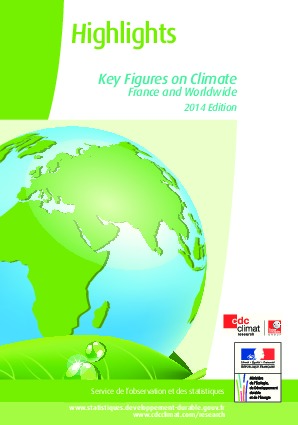Highlights – Key Figures on Climate France and Worldwide 2014 Edition
By Frédéric OURADOU, Florine WONG, Jérôme DUVERNOY, Romain MOREL
In line with previous editions, the 2014 edition of “Key Figures on Climate” has been prepared within the context of the 19th Conference of the Parties on Climate Change (COP19) held in Warsaw from the 11th to the 22nd of November 2013. This latest version has been partially revised from the 2013 edition. In particular, data and figures extracted from volume one of the Intergovernmental Panel on Climate Change (IPCC) fifth Assessment Report, released in September 2013, have replaced the previous ones, dating from 2007. Moreover, a section has been added comparing GHG emissions results from “territorial” and “carbon footprint” approaches.
This publication, through its organization and the choice of covered topics, is aimed at informing the widest audience possible about climate change, its geophysical properties, causes and effects as well as the international policy frameworks established to limit its progression.
